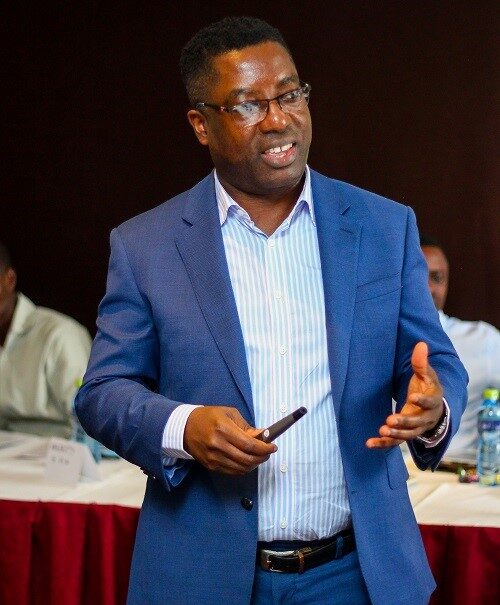Vaccination is one of public health’s most potent and most successful tools for disease control and prevention. The eradication of smallpox three decades ago, the 78% decline in global measles deaths between 2000 and 2008, and near-total eradication of polio are among the many public health successes facilitated by effective vaccination programs.
As you know, Ghana launched its coronavirus vaccination drive on Tuesday 2nd March 2021 with doses from the global COVAX vaccine-sharing programme, which delivered shipments to other African countries as its vaccine rollout to developing nations accelerates.
The start of vaccinations in Ghana, and in neighbouring Ivory Coast on Monday, along with the expected delivery of millions of vaccines from the COVAX programme this week, will enable more African countries to start inoculating mostly frontline workers and the vulnerable, months after wealthier countries began.
COVAX is the programme backed by the World Health Organization and GAVI vaccine alliance to provide vaccines for poor and middle-income countries. It said on Tuesday it aims to deliver 237 million doses of AstraZeneca’s shot to 142 countries by the end of May.
Vaccine deliveries through the COVAX scheme are expected to accelerate in the coming week with million doses of the AstraZeneca-Oxford and Pfizer-BioNTech vaccines delivered to countries in Africa including Nigeria and the Democratic Republic of Congo.
However, as Africa is getting ready to roll out COVID-19 vaccines, the question most observers are asking is: Would Covid 19 vaccination program succeed in Africa?Source: Yahoo.com
The dawn of the misinformation age & the conspiracy theories
Digital deception in online social network, particularly the viral spread of misinformation and disinformation, is a critical concern at present. Online social networks are used as a means to spread digital deception within local, national and global communities which has led to a renewed focus on the means of detection and defense.
The audience (i.e. social media users) form the first line of defense in this process and it is utmost importance to understand the who, how, and what of audience engagement. This will shed light on how to effectively use this wisdom-of-the-audience to provide an initial defence.
In recent years, disinformation including fake news, has become a global phenomenon due to its explosive growth, particularly on social media. The widespread of disinformation and fake news can cause detrimental societal effects. Despite the recent progress in detecting disinformation and fake news, it is still non-trivial due to its complexity, diversity, multi-modality, and the costs of fact-checking or annotation.

Vaccination programs are very sensitive to public perception, which is in part fuelled by conspiracy theories and half-baked research studies, particularly on the adverse effects of vaccination. Therein lies a challenge for public health officials trying to convince a wary portion of the public that the COVID-19 vaccines are safe and effective. Phony assertions have circulated for months on social media, joining a current of anti-vaccine sentiment that has grown stronger over the last 20 years.
The current misinformation and conspiracy theories concerning the use of Covid 19 vaccination has the potential negative public health impacts at several levels:
First, public health entails a social contract based on trust. A well-publicised betrayal of trust on a public health issue such as this has a potential to impact negatively on other public health programs, and precipitate reversals of public health gains, such as measles control.
Second, global health is an important means of improving global and national security. While it may be true that less people have died from Covid 19 in Africa compared with those killed in the West, however the adverse impact of exploiting the evolving social contract between public health professionals and the community for achieving Africa, (even global) security goals is short-sighted, as its adverse effects will derail other public health programs and policies, and damage Africa’s economy as well as its credibility in the global health improvement arena
Why it Matters
In Africa, vaccine hesitancy has been fuelled by false rumours and conspiracy theories. That misinformation has had dramatic consequences. Over the past two decades, vaccine-related rumours in different parts of Africa have led people to refuse recommended vaccines for themselves or their children, even when those vaccines were available. This made communities more susceptible to infectious diseases and resulted in multiple disease outbreaks, ultimately consuming resources and costing lives.
As the vaccine rollout begins in Africa, here are some common myths about COVID-19 vaccines that you should IGNORE
Myth #1: The vaccine contains a microchip – This is FAKE! The technology does not exist. And even if it did, the microchips would have to find their way into multiple vaccines created by different companies in different countries
Myth #2: The vaccine will alter your DNA – This is FAKE! DNA and messenger RNA are entirely different molecules. There’s no DNA with (the) vaccines, so there’s no possibility it could alter your DNA
Myth #3: The vaccine will give you COVID-19 – This is FAKE! You may experience minor side effects; however, they are just a sign that the vaccine is working, and the immune system is kicking into gear.
Myth #4: Our immune systems are better than vaccines – This is not true because most of the vaccines have a high efficacy rate, which could swiftly bring about herd immunity that would prevent people from encountering the virus at all
No, COVID-19 vaccines don’t contain Satan’s microchips (and other scary conspiracy theories aren’t true either)
But what can we do about it?
From the above, it is obvious that vaccine hesitancy is complex, shaped by multiple psychological, ideological, and contextual factors, consequently different kinds of interventions are needed to address different forms of vaccine hesitancy in Africa.
First, health experts have argued that more education on the drug must be given. This should be done through community participation and the involvement of community stakeholders such as traditional heads, chiefs, opinion group leaders, and religious leaders, etc. Community mobilization in this regard should be aimed at achieving two goals; firstly, to discredit false reports on the COVID-19 vaccine and secondly, to ensure health education on the benefits of the COVID-19 vaccine, thus contributing to an increased uptake of the COVID-19 vaccine.
With promising results from ongoing COVID-19 vaccination, multisectoral collaboration is also a sure key to enhancing COVID-19 vaccine uptake. All sectors in all countries on the African continent should be responsive towards improving health education on the importance of the COVID-19 vaccine.
In addition, the Integration of the prospective COVID-19 vaccine program into the existing healthcare services presents a promising strategy to overcoming vaccine hesitancy and improve vaccine uptake.
Thirdly, until we repair that relationship of trust, we’re going to have problems sharing the truth; In this regard, Health authorities across the continent of Africa should step up efforts to fight conspiracy theories around the vaccines. They need to organise various COVID-19 vaccination campaign across all communities in Africa.
Worth noting:
While this sort of pushback against vaccine myths is happening in many quarters, Experts believe it might not be enough to counteract the conspiracy theories. Subscribing to falsehoods has become a form of identity, and a way people can reflect the mistrust they feel toward the government and media; consequently, our leaders should also step up their effort to boost public confidence in the vaccines.
In this regard, the Ghanaian President has been doing a fantastic job. On Tuesday, President Akufo-Addo and his wife were inoculated in public view and he also made the following statement (and I quote): “Taking the vaccine will not alter your DNA, it will not embed a tracking device in your body, neither will it cause infertility in women or in men. As your President, I want to assure you that the vaccine is safe” (President Nana Akufo-Addo)

>>>The writer is a UK based InfoSec & Business Continuity Consultant, with main focus on helping organisations to implement Digital Transformation, defend their digital infrastructure and plan their Business Continuity Strategies. Del is also a Freelance writer, international Conference speaker and a Global trainer. Contact: [email protected] | WhatsApp:+44 7973 623 624 | Web: www.delta3.co










